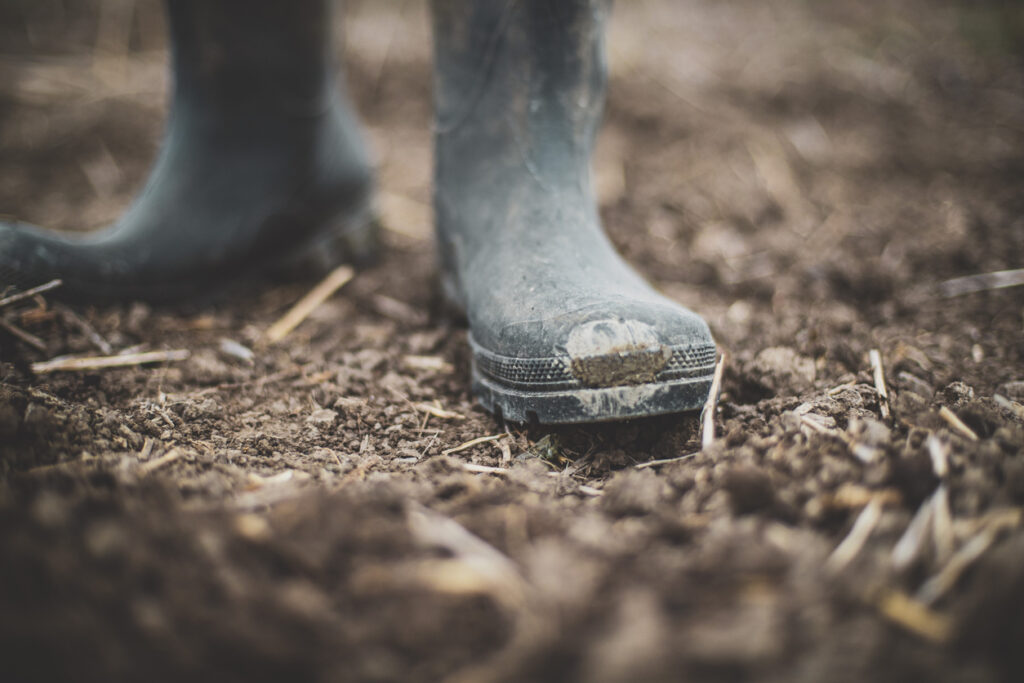August 10, 2020
Can I swim in the mud?
The question jumped off the page of the book I was reading. As I tried to visualize doing the breaststroke covered in a goopy mess, the answer was obvious. The question, an analogue by author Karen Karper, a Poor Clare nun of 30 years, was posed in response to her decision to live a life of solitude. The book describes her transition from life in the convent to inhabiting a shack located in a sleepy holler in West Virginia, absent running water and electricity.
As a follower of St. Francis of Assisi and St. Clare, the call to live the Gospel in a more radical way eventually became too loud to ignore. So, when a shack in the woods near a hermitage, where two Franciscan nuns lived in response to a similar calling, became available, Karper decided to take the plunge.
Armed with a Bible, a few hundred dollars, and a 10-year-old Ford Bronco, she began a journey which depended largely on faith. Arriving during one of the rainiest summers on record, she found herself surrounded by mud, and quickly learned that a pair of sturdy boots served her far better than naïve notions about living in the wild.
Engulfed by feelings of desperation, amid insects, rodents and an occasional snake, she questioned her sanity, giving rise to her self-imposed query that demanded an answer.
Swimming in the mud meant staying the course despite the natural inclination to pack up and leave. Years after documenting her sojourn into solitude, Karper continues to live a life of voluntary poverty, relying on quilting and writing to support her lifestyle.
I’m in awe of people who have the courage to embrace the Gospel in so radical a manner. Although I don’t feel called in the same way, I’m always challenged by their faith and trust in Divine Providence, which is why the author’s question resonated.
I may not be surrounded by physical mud, but as I look around our world, mud and mudslinging seem to be everywhere. Amid pain and violence, corruption and racism, bullying and indifference, I find myself asking: “Can I swim in the mud?”
Swimming in the mud is an appropriate analogy because wherever there is life there will be pain and suffering. It’s the consequence of sin. Yet, as Christians, we’re called to persist because faith isn’t about ignoring the pain, nor is it about putting a smiley face on life’s difficulties, on God or on faith.
Suffering isn’t always bad. Sometimes living amid harsh conditions helps us discover who we are and what we value. It helps us separate needs from wants and strengthens resolve. It’s where we learn to persevere, learn patience and practice charity even as we struggle to keep evil from muddying our own heart.
Like a pair of sturdy boots, prayer and the sacraments help us slosh through the mud of life without having to throw mud at others. If we’re honest with ourselves, it’s probably one of life’s greatest challenges.
Only God can give us the strength to remain hopeful, to keep swimming, while reminding us that weeds and wheat exist side by side for a reason. When I allow the mud to hold me back rather than rely on the grace that keeps me swimming, it’s because mud has seeped into the cracks of my heart.
Then the words of St. John of the Cross serve me well: “See that you are not saddened by the adversities of this world, for you do not know the good they bring, being ordained in the judgments of God for the everlasting joy of the elect.”
In this life, things will not always be to our liking, nor will life be easy. We won’t always get everything right, and sometimes it feels as if we’re swimming in the mud. However, just because it seems impossible doesn’t mean we can’t do it.
Jesus said, “With God all things are possible” (Mt 19:26). God came down from heaven and pitched his tent among us, right in the middle of the mud so that we could swim all the way to heaven.
As Karper discovered, God is present in every person and circumstance, even in what seemed like a perpetual pool of mud. Not only did she learn that she could swim in the mud, but it became a life-changing experience.
Amid never-ending challenges, the author learned that God doesn’t make mud disappear; he gives us the strength and courage to keep swimming — a lesson we can all take to heart.

